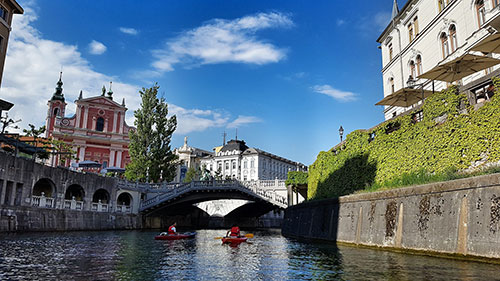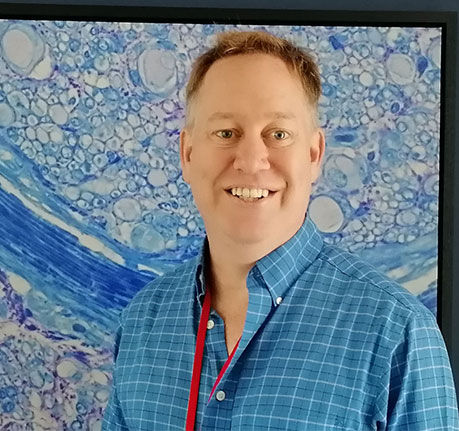CAREER SPOTLIGHT: MATJAŽ JAKOPEC
- Colette Cooley
- Mar 14, 2022
- 5 min read
Updated: Oct 14, 2022

Welcome to another Life @ BIOS episode! This time, our Software Engineering Lead Matjaž Jakopec shares his software and medical device background as a staff member of 4 years.
Tell us about your role and main responsibilities at BIOS
I look after everything software-related. – I joined BIOS after the first round of investment and built up the team with software developers and ML developers. I also set up all the procedures compliant to IEC 62304 medical device software standard (an open ISO standard) and did a lot of the high-level system architecture. In managing the team, I help them to do the actual development, coding, and testing, as well as helping them find their own strengths and grow themselves developmentally.
What led you to get into this line of work?
I did a Ph.D. in medical robotics. Although I was always interested in software & robotics, I wasn’t specifically thinking “I want to work in medical robotics” but it was an opportunity at Mechatronics in Medicine, Imperial College London that appealed to me because it was helping humanity rather than doing something for money. We built a medical robot for knee surgery, it was really pioneering at the time and was a research project that got to clinical trials. From this, we formed a company called Acrobot. It was a big learning curve for me in taking the robot from a research project to commercialisation with CE & FDA approval.
But here is where I got my experience in setting up medical device development processes and learning about all the regulations and so on. It was hard to go from doing everything yourself to then transition into a managerial role, letting go of the hands-on work and letting your team go ahead and do their job whilst still be there to guide them & help them.
What interested you about what we do?
I met BIOS founders Oli and Emil through Sudha (Head of Engineering). He remembered me from when I was Head of CAS (Computer Assisted Surgery) Development at Stanmore Implants who bought Acrobot. We worked together on the Sculptor robotic system for patient-specific knee replacement. At the time I was quite happy working at a machine learning company in London. I met Oli and Emil and they sketched out what they were doing. This was just before they got funding and I remember thinking “this sounds interesting!”

I think what drew me in was mainly the mix of very clever people with a really bold mission. BIOS is really pioneering - it reminded me of my Acrobot days and I had previously thought, “well I’ll never find anything like that again…” But with BIOS I have I think, and the vision has become bolder and more pioneering the bigger we’ve become. When I started, I was flown over to Minneapolis in the US to help with a preclinical trial and found that they were already very well organised – much more so than many bigger companies I have seen and worked with. I thought “wow these guys really mean business!”
What do you like best about your job?
Working with bright and talented people of all sorts. It’s a very diverse, multidisciplinary team with electrical engineers, mechanical engineers, software developers, machine learning researchers and developers… We’re doing really clever stuff and it’s such an open company that people can chat to each other without worrying about any politics or having to speak to someone’s boss first.
What are the benefits of working here?
BIOS has a policy of hybrid working (from office and home setup) and Oli and Emil agreed to let me work from my home country of Slovenia in the Summer months. This is very important for us, to visit family and for my seven-year-old daughter to be immersed in Slovenian culture & learn the Slovene language.
What are the people like?
Everyone is very friendly and helpful. They are good to talk to about anything. It feels like a big family here.
Is there a specific project at BIOS that you’ve particularly enjoyed working on?
Through the pandemic I had to do some coding for the Remote Health Team for a change. - Which was nice because I don’t do so much of that anymore as a manager.
I also like being involved in the preclinical trials. It was challenging trying to run a trial remotely. When people were allowed back into the office we were all sat at our desks with headsets. Then as the designated person to liaise between the UK team and those in the theatre in Canada, I felt like a NASA CAPCOM! This is necessary of course because if you don’t have this person, then with all the noise of everyone trying to communicate, it gets a bit overwhelming for the clinical team in the operating theatre, who need to really focus on the procedure. Time is normally extremely precious during surgery, however as Canada was under a 6pm curfew last year it meant we had to make sure to be even more strict with time. What have been the highlights of your career prior to working with BIOS?
My Acrobot days. I felt really proud and privileged to be part of that project (I still get cited for the papers I wrote!). The first clinical trials were with a very rudimentary system. I was the surgeon’s interface, so I was there in the operating theatre, at the computer and the surgeon was telling me what he wanted the robot to do. It was very intense but very exciting for me to be part of something that pioneering, something that made a paradigm shift in the medical world. In a similar way, I believe BIOS’ Neural Digital Therapy vision will drastically change & improve how many conditions are treated in the future.
What advice would you give to new entrants into this industry?
From my experience, I think for anyone wanting to enter into medical device development, the important thing is to keep in mind that at the end of the day it’s a human, another person that you’re going to be affecting in some way. And keeping their safety is paramount. If you develop something and there’s a bug or it crashes and you lose some money or reputation before it’s actually used, so what?!
We are dealing with humans and that’s why we build strong procedures to avoid issues. It is a constraint, but it is an important thing to keep in mind. A colleague once said to me “what if it was your Dad or Mother, or Brother or Sister that needed the device…would you do the same thing or would you do it differently?”
If you enjoyed this blog and like the idea of joining us, click here to find out more about us and the benefits offered, or here to check out our current vacancies.













Comments